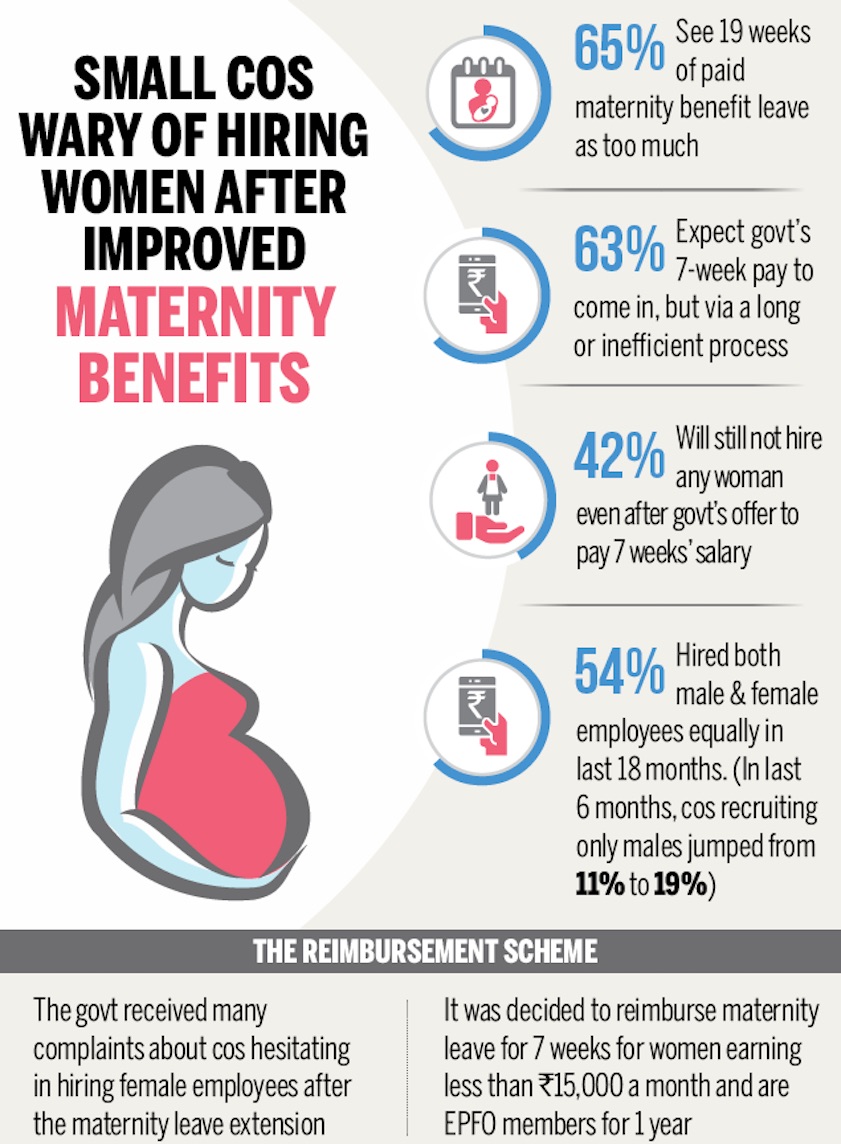Maternity leave, benefits and the law: India
This is a collection of articles archived for the excellence of their content. |
Contents |
Surrogacy
Surrogacy not a hurdle for maternity leave: HC
Mahir Haneef The Times of India Jan 07 2015
The Kerala high court ruled that women who seek the help of surrogate mothers are eligible for maternity benefits and cannot be discriminated against. Justice Dama Seshadri Naidu was considering the plea of a woman whose employer had denied her maternity leave for taking care of her newborn baby since she was not the biological mother.
In the judgment delivered on the petition filed by P Geetha, deputy general manager at Kerala Livestock Development Board (KLDB), the court said: “This court declares that there ought not be any discrimination of a woman as far as the maternity benefits are con cerned only on the ground that she had obtained the baby through surrogacy.” The court, however, said women who opt for surrogacy cannot be granted convalescence leave that is available for biological mothers. “It is further made clear that as a matter of legal fiction, the petitioner is entitled to all the benefits an employee could have post-delivery, sans the leave involving the health of the mother after the delivery,” it said. “In other words, the child-specific statutory benefits, if any, can be extended to the petitioner.” Referring to Maternity Benefit Act of 1961, the court said the scheme laid out in the law not only includes leave for convalescing from labour but also nursing breaks.
Maternity leave, India and the world
2015
See graphic: Maternity leave, India and the world

26 week maternity leave/ 2016
The Times of India, Aug 12 2016
26-week maternity leave gets RS stamp Despite sharp differences over the benefits for surrogate mothers, the government and opposition came together to pass a bill which mandates a 26-week maternity leave. The Maternity Benefit (Amendment) Bill, 2016, which was moved in the Upper House was passed after a discussion through a voice vote.
The bill seeks to enhance maternity benefit from 12 weeks to 26 weeks for two children and is expected to benefit close to two million women in the organised sector.
However, with the bill not addressing the issue of surrogate mothers, MPs from Congress, SP and TMC insisted that the government consider providing similar benefits to them too. The government said it would examine the request.
“The very purpose of this bill is to increase the working women force because in the work force, participation of women is decreasing day by day ,“ said labour minister Bandaru Dattatreya who introduced the bill.
The new law will be applicable to all establishments employing 10 or more people.
Women and child development minister Maneka Gandhi said the bill had its roots in malnutrition, as breastfeeding the child was recommended and which was not possible unless the mother was in physical proximity of the child. The bill also facilitates `work from home' for nursing mothers once the leave period ends and has made creche facility mandatory in establishments with 50 or more employees.
Observing that the legislation will go a long way to ensure that future generations are healthier, Gandhi said her ministry had recommended raising maternity leave from 12 weeks to 8 months but it was considered too long for the employer.
The minister said the government was thinking of introducing direct benefit transfer for women.
Small companies now resist hiring women

From: Maternity Benefit Act: Extra financial burden make small cos resists hiring women, December 6, 2018: The Times of India
See graphic:
Small companies wary of hiring women after maternity benefits- some details
The amended maternity act has increased paid leave for women in India from 12 weeks to 26. But startups and SMEs are cautious in hiring women due to the extra financial burden. According to a survey conducted by LocalCircles, the resistance to recruiting women exists despite the govt offering to pay 50%, or 7 weeks, of the salary for the 14 weeks of extended maternity benefit, leaving cos to foot the bill for the remaining 19 weeks. Here's a look.